Unleash the Future: AI Entertainment Awakens
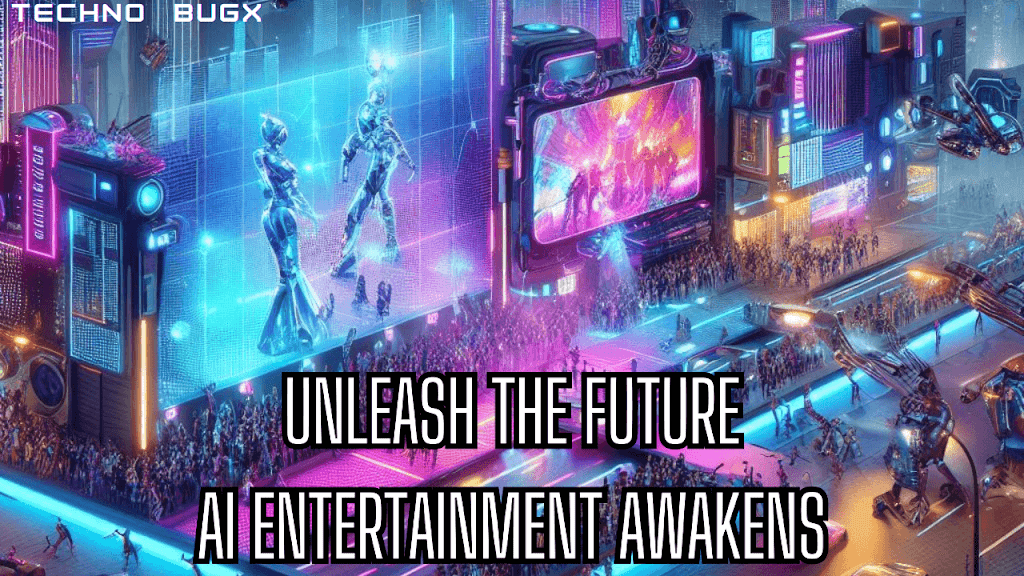
A new company has emerged in the competitive entertainment market called AI Entertainment, which has audiences spellbound with its allure of the future. This cutting-edge industry fuses the power of artificial intelligence with the allure of entertainment, offering an enthralling revolution.
Artificial intelligence in entertainment, or AI Entertainment, is an intriguing fusion of cutting-edge technology with creative expression. In this article, we will go into the fascinating realm of AI entertainment, looking at its origins, its tremendous influence on the sector, its numerous uses, as well as the difficulties and moral questions it poses.
TABLE OF CONTENTS
- AI Entertainment
- AI Entertainment Application
- AI in Animation and Visual Effects
- Challenges and Ethical Considerations
- The Future of AI Entertainment
- Conclusion
What is AI Entertainment?
Artificial intelligence integration into numerous sectors of the entertainment industry is what AI Entertainment essentially refers to. It covers a wide range of uses, from creating music and movies to boosting gaming and giving consumers personalized content recommendations. The use of AI in entertainment is not a fresh discovery; it has been evolving for many years.
When researchers and producers understood that AI could do much more than just crunch data, they planted the seeds for AI entertainment. They discovered that AI could comprehend, mimic, and even produce human creativity.
AI has evolved over time from straightforward algorithms to intricate neural networks that can mimic human understanding. The world of entertainment now offers a wealth of opportunities, thanks to this advancement.
The Impact of AI in Entertainment
Artificial intelligence has had nothing short of a transformational effect on the entertainment sector. AI is currently used in scriptwriting for movies and television, where it can evaluate patterns and anticipate viewer preferences to produce more captivating stories. With CGI, it is also revolutionizing visual effects by producing realistic characters and environments.
AI algorithms can create music in the music industry, either in the style of well-known musicians or by creating very new genres. AI is used by streaming services to create tailored playlists that keep listeners interested and make finding new music simple.
With AI-driven game design, intelligent NPCs (non-playable characters), and immersive virtual and augmented reality experiences, gaming has undergone a transformation.
AI Entertainment Applications
-
Film and TV
-
Music
-
Gaming
-
Content Recommendation
Film and TV:
AI has a long history in the film and television industries. Currently, scriptwriters examine scripts using AI-powered technologies that also measure audience engagement and improve dialogue. With the help of AI, CGI has advanced significantly, making it possible to produce breathtaking visual effects and bring imaginative creatures to life.
AI algorithms that forecast movie office success based on actor popularity and audience demographics can potentially have an impact on casting decisions. Additionally, AI-powered recommendation systems assist streaming services in making content suggestions that are specific to user preferences.
Music:
AI is revolutionizing the creative process in music. AI programs have the ability to write original music, either in their own unique style or by emulating the work of famous composers.
Music producers, to improve sound quality and automate tedious processes, use AI. Utilizing AI, streaming services provide consumers with customized playlists that introduce them to new songs and artists based on their listening history.
Gaming:
AI is being used by the video game industry to construct dynamic, immersive worlds. Players can engage with AI-driven NPCs in a way that is more demanding and realistic. AI algorithms that adjust to user movements and activities, making each gaming session distinct, power virtual reality and augmented reality experiences.
Content Recommendation:
Systems that recommend content using AI are a mainstay of contemporary entertainment. In order to make recommendations for films, TV episodes, music, or games that suit specific likes, they examine user behavior, preferences, and watching history. For streaming services, this personalization increases user retention and happiness.
AI in Animation and Visual Effects
- AI-driven animation methods that improve animated movies’ effectiveness and quality
- Deep learning algorithms are utilized to create realistic character movements and facial expressions.
- AI functions in color grading and composing, among other post-production procedures.
AI-Enhanced User Experiences
- AI powers virtual assistants and chabots for immersive gaming and interactive storytelling.
- Virtual reality experiences that are tailored to the choices and actions of the user.
- Voice recognition in smart home entertainment systems powered by AI
AI and Content Localization
- The process of translating and customizing information for international audiences is streamlined and made simpler by AI.
- Solutions for worldwide distribution that use AI-driven dubbing and subtitling.
- AI’s effects on localization and content discovery for streaming services.
AI-Generated Content Monetization
- Methods for making money off music, art, and literary works produced by AI.
- Platforms and markets that make it easier to buy and license works produced by AI.
- Regarding copyright and intellectual property in the context of AI-generated material.
Challenges and Ethical Considerations
There are difficulties and moral conundrums associated with the integration of AI into entertainment. There are worries that jobs in the creative industries will be lost as AI takes on duties like music composition and scriptwriting.
As AI systems gather and analyze user data to customize content recommendations, privacy concerns arise. Another issue is the possibility of stereotypes in entertainment being reinforced by AI-generated content by maintaining biases found in training data.
- Questions about copyright and ownership of AI-generated work are among the ethical issues.
- Who is the legal owner of music that was created by an AI algorithm?
- How should screenplays created by AI be acknowledged in movies and television?
- As AI grows increasingly pervasive in entertainment, the sector must deal with these complicated concerns.
The Future of AI Entertainment
- AI-Generated Interactive Narratives
- AI-Powered Virtual Actors and Performers
- Hyper-Personalized Entertainment Experiences
- Enhanced Content Discovery and Recommendation
- Collaborative Creativity between Humans and AI
- The Challenge of Ethical AI in Entertainment
Without a doubt, AI Entertainment has a bright future. New patterns suggest that AI will continue to radically transform the market. We may look forward to AI-driven virtual characters, plots and narratives created by AI, and even more immersive game experiences.
The distinction between human and AI-authored art will grow more blurry as AI-driven content creation becomes more advanced. AI algorithms will excel at creating content that profoundly connects with audiences as they become better at comprehending human emotions and needs.
The ability of the industry to solve ethical issues and adjust to the changing landscape of technology and creativity will play a role in how successful AI entertainment will be in the future.
Future Challenges and Opportunities
- AI’s Role in Personalized Content Consumption.
- Exploring the potential of AI to create hyper-personalized entertainment experiences.
- Balancing customization with privacy concerns and data security.
- The ethical implications of AI knowing us better than we know ourselves.
Conclusion
AI entertainment is an exciting new frontier where innovation and technology combine to transform how we perceive and appreciate entertainment. With innumerable advancements in the works, AI is already having a significant impact
Entertainment including:
Movies
Music
Games
Content recommendations.
AI must be used cautiously as it is increasingly incorporated into the entertainment sector. To secure a future in which technology contributes to, rather than diminishes, the depth of human creativity, it is crucial to address the issues and ethical concerns regarding AI entertainment.
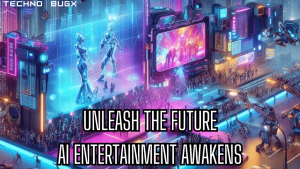
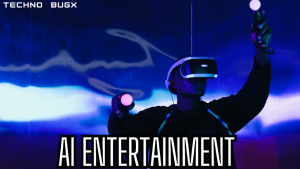
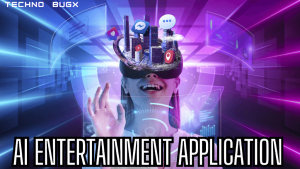
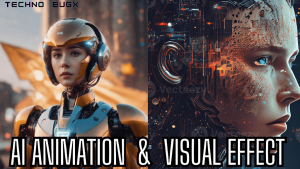
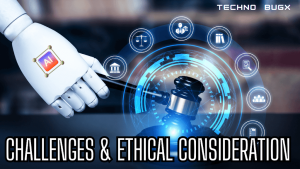

Leave a Comment